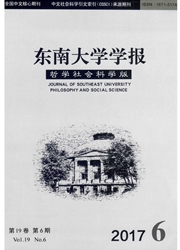

 中文摘要:
中文摘要:
本文从博弈论的角度,分析了信息披露在上市公司大股东侵占模型中对大股东的抑制作用、对小股东的保护作用以及对监管的促进作用。研究分别构建了基于大股东侵占行为的“大股东一小股东”、“大股东一监管者”的博弈模型,对模型中行动人的均衡策略结果进行了分析。就大股东而言,信息披露因素能够通过影响行动人的收益策略,起到抑制大股东侵占行为的作用;就小股东而言,信息披露能够有效增加大股东的侵占成本,降低小股东的监督成本,并能借助市场作用形成小股东对大股东行为的有效监督,有利于保护小股东权益;就监管而言,信息披露可促进以证券投资机构为代表的市场中介机构不断改善信息披露质量,从而发挥降低监管者成本、提高监管效率的作用。在完关的信息披露制度下,行动人的均衡策略可以达到帕累托最优状态。
 英文摘要:
英文摘要:
This paper discusses the inhibiting effects of information disclosure on large shareholder expropria-tion in listed companies from the perspective of game theory. This paper develops game models of large-small share-holder and large shareholder-regulator, and then analyzes the equilibrium strategies of players in these two models respectively. Information disclosure plays a role in inhibiting large shareholders' expropriation by affecting players' payoffs in actions. In terms of protection of small shareholders' rights, information disclosure can effectively in- crease the cost of the expropriation from large shareholders, and reduce the cost of small shareholders' supervision, therefore conducts effective supervision on the large shareholders' behavior through the power of security market. In terms of regulatory efficiency, market intermediaries like securities and investment institutions can help improve the quality of information disclosure. This confirms the role of information disclosure in reducing regulatory costs and improving the regulatory efficiency. In the case of perfect information disclosure, players' equilibrium strate- gies can reach Pareto optimality.
 同期刊论文项目
同期刊论文项目
 同项目期刊论文
同项目期刊论文
 期刊信息
期刊信息
